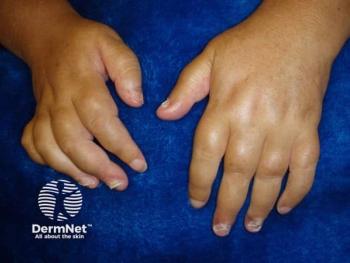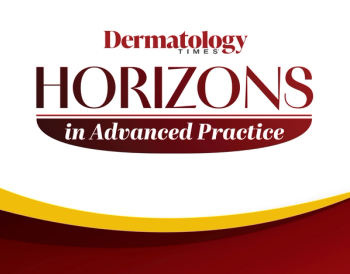
- Dermatology Times, March 2023 (Vol. 44. No. 03)
- Volume 44
- Issue 03
Biologics Offer Great Results in Treating Psoriasis, but at a Cost
Highly effective medications for severe disease are expensive and administered invasively, while the development of treatments for milder disease has lagged, a new review on psoriasis clinical trials concludes.
Over the last two decades, the understanding of the pathogenesis of psoriasis has increased substantially, opening up new pathways to treatment.
While these treatments—like biologics—are highly effective, they are also limited by cost and administration challenges. And despite these discoveries, there has been little advancement in traditional, topical treatments, and there is still no cure for this chronic condition.
A review published in the September 2022 issue of Dermatology Therapy investigated some of the newest advances being collectively researched in clinical trials for psoriasis treatment over the previous year. A big theme, according to the study, was several small molecule oral medications in various phases of clinical trials that may help to reduce some of the limitations of biologic therapies.
Many of the newer, highly effective medications for treating psoriasis target the interleukin (IL)-23/IL-17 axis, the pathway where psoriatic inflammation is believed to be triggered. Medications like tumor necrosis factor (TNF)-a, IL-12/23, IL-23, and IL-17 inhibitors target these pathways and have produced superior results in treating moderate-to-severe psoriasis, but the study also notes that progress on treating milder cases of psoriasis has somewhat stalled.
Treatments for mild psoriasis still center on systemic medications with a high risk of toxicity such as methotrexate, or traditional topicals that are less effective and carry a risk for long-term consequences, the report notes.
So while newer medications have ultimately led to better skin clearing and an improved quality of life, it comes at a higher cost and these medications usually involve injections or infusions that can create a barrier for many patients. The lack of progress in other systemic and topical medications highlights the treatment gaps in psoriasis, and the need for new treatments, according to the study.
Some treatments currently in trial phases were identified in the study and include things like:
- Interleukin-36 Inhibitors
- Interleukin-23 Inhibitors
- Interleukin-17 Inhibitors
- Phosphodiesterase-4 Inhibitors
- Janus Kinase Inhibitors
- Receptor-Interacting Serine Protein-Kinase 1 Inhibitors
- Retinoic Acid Receptor-Related Orphan Receptor ct Inhibitors
- A3 Adenosine Receptor Agonists
- Aryl Hydrocarbon Receptor Modulators
- CXC Chemokine Receptor 2 Antagonists
Many of these medications are in the later stages of clinical trials and harness the efficacy of biologic medications but offer an oral administration option. There are also more options geared toward treating mild psoriasis instead of reserving these treatments for more severe forms of the disease.
There are also several medications in the early stages of clinical trials for which data is limited, but that also offer more oral treatment options. These include:
- Reactive aldehyde species inhibitor (ADX-629)
- Calcitonin gene-related peptide (CGRP) receptor antagonist (Rimegepant)
- Sphingosine-1-phosphate receptor 1 (SIPR1) agonist
Finally, the study highlighted a number of treatments recently approved by the US Food and Drug Administration for psoriasis, including:
- Deucravacitinib, an oral TYK2 inhibitor
- Spesolimab, an anti-IL-36R antibody
- Other nonsteroidal topical agents
The study authors estimate that progress in developing new treatments will continue at a rapid pace in the coming years, especially as what is understood about the disease itself evolves. The biggest focus with these new treatments, the research team says, is data on the long-term efficacy and the safety of these new treatments.
Reference
- Drakos A, Vendor R. A review of the clinical trial landscape in psoriasis: An update for clinicians. Dermatol. Ther. September 2022. doi:10.1007/s13555-022-00840-9
Articles in this issue
over 2 years ago
Discovering Dermatology Times: March 2023over 2 years ago
New Technology Could Allow Us to Rethink Alopecia Scoresover 2 years ago
Oral Vitamin D Supplementation May Lower Melanoma Riskover 2 years ago
Nourishing the Skin From Withinover 2 years ago
Confidence Confirmed for Atopic Dermatitis Treatmentover 2 years ago
Is a Recession Coming? 4 Personal Financial Lessons From 2020over 2 years ago
Exploring Cosmetic Cellulite Topical Creamsover 2 years ago
Domestic Abuse and My Employee. Can I Fire Her?Newsletter
Like what you’re reading? Subscribe to Dermatology Times for weekly updates on therapies, innovations, and real-world practice tips.



















